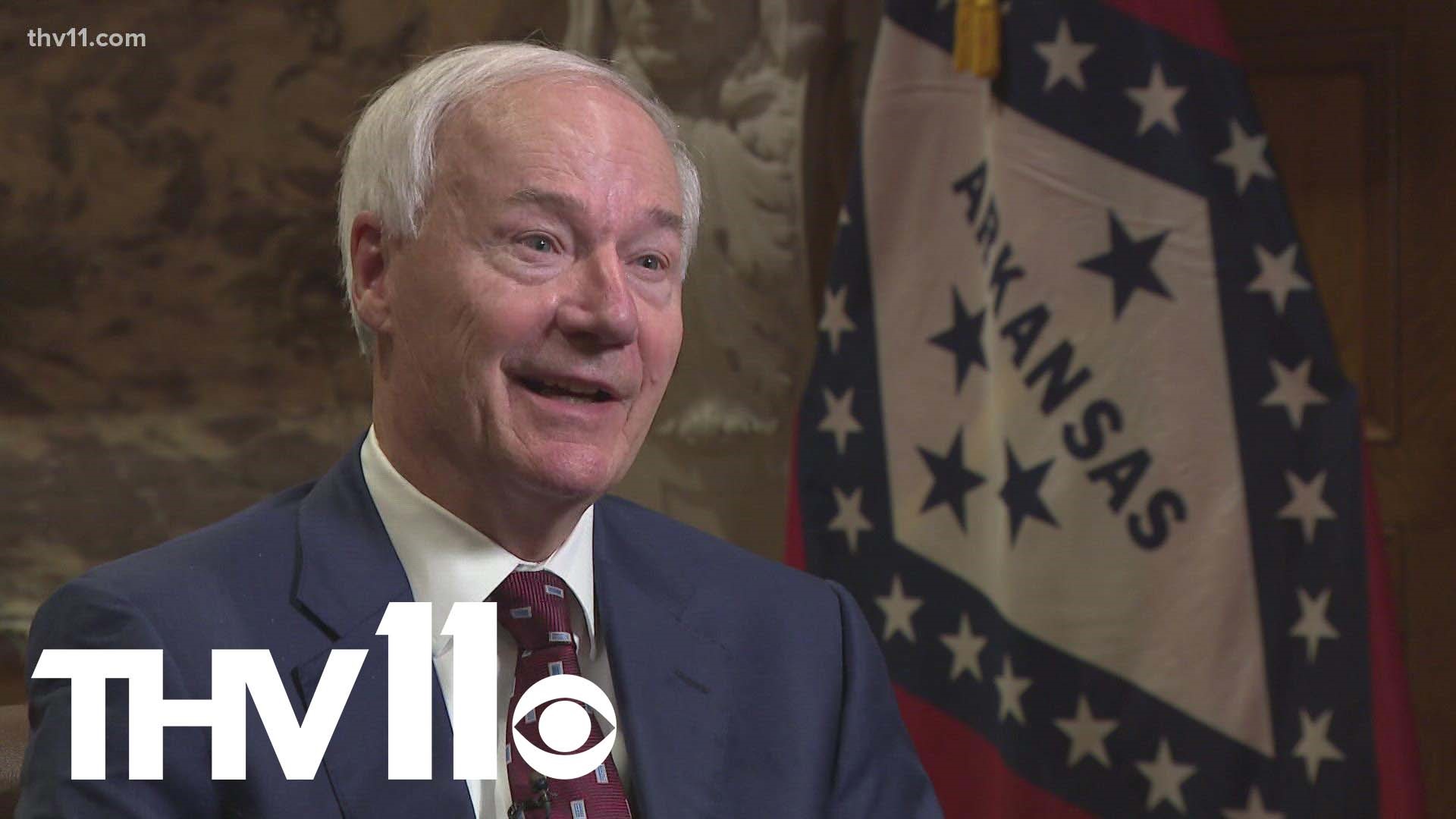LITTLE ROCK, Ark. — Following a landmark ruling like the overturning of Roe v. Wade, many people in the state are asking-- what comes next for Arkansans?
Gov. Asa Hutchinson sat down to share how he's responding to the ruling.
Hours after Roe v. Wade was overturned, Arkansas Attorney General Leslie Rutledge certified a law that banned nearly all abortions in the state, except in the case to save the mother's life.
"The United States Supreme Court has in fact, overruled Roe vs. Wade and Planned Parenthood vs Casey, thereby restoring the State of Arkansas the authority to prohibit abortions," Rutledge said.
Last year, Gov. Hutchinson signed that same law which was unable to take effect until today's ruling.
Gov. Hutchinson sat down minutes after the law's certification to discuss the magnitude of the moment and what it could mean for the future.
"That change in one decision today is probably one of the most dramatic historical moments that I've had from the court in my lifetime," he said.
This new law in Arkansas has no exceptions for rape or incest. Last month, Hutchinson said that he would consider efforts to put those exceptions in place-- but following the certification, he shared a different perspective.
"I've made the point that there is a closer debate on the exceptions of rape and incest, but the legislative will was clear. I don't expect that to be revisited in the short term, if at all, and because they expressed the will of the people of Arkansas that they want to protect the life of the unborn [child]," Hutchinson said.
You look at the stats, and you will see that Arkansas has one of the highest teen pregnancy rates-- this age group historically makes up a large portion of abortion patients.
As for contraceptives, Hutchinson shared that they will continue to be available under state law
"It's important to note, and this is not for teens, because you know, hopefully they will exercise abstinence, but the there is no prohibition in terms of contraceptive access," Hutchinson said.
There is still some confusion as to where emergency contraceptives, such as plan-b, fall on this law. There's also confusion as to when a high risk pregnancy is considered 'life-threatening'
"That's something that a physician has to determine. That's not something that the government does, we don't step in there and try to replace what the physician says," Hutchinson said.
As far as the foster care system, Hutchinson shared that resources for additional expected births aren't quite ready at the moment, but that he predicts that they'll adapt to the increased need for resources once it arrives.
"I think that there will be a growing demand and I think parents will step up to the plate. I think they will be willing to adopt as needed. But, you know, we want to put the resources as needed," Hutchinson said.
Hutchinson also mentioned investing more money toward crisis pregnancy centers, but there are still unanswered questions about what resources will be needed and to what quantity.

